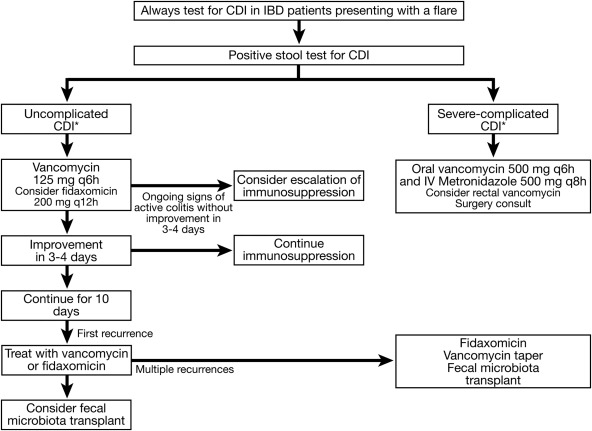1. Clinicians should test patients who present with a flare of underlying inflammatory bowel disease for Clostridium difficile infection.
2. Clinicians should screen for recurrent C. difficile infection if diarrhea or other symptoms of colitis persist or return after antibiotic treatment for C. difficile infection.
3. Clinicians should consider treating C. difficile infection in inflammatory bowel disease patients with vancomycin instead of metronidazole.
4. Clinicians strongly should consider hospitalization for close monitoring and aggressive management for inflammatory bowel disease patients with C. difficile infection who have profuse diarrhea, severe abdominal pain, a markedly increased peripheral blood leukocyte count, or other evidence of sepsis.
5. Clinicians may postpone escalation of steroids and other immunosuppression agents during acute C. difficile infection until therapy for C. difficile infection has been initiated. However, the decision to withhold or continue immunosuppression in inflammatory bowel disease patients with C. difficile infection should be individualized because there is insufficient existing robust literature on which to develop firm recommendations.
6. Clinicians should offer a referral for fecal microbiota transplantation to inflammatory bowel disease patients with recurrent C. difficile infection.













